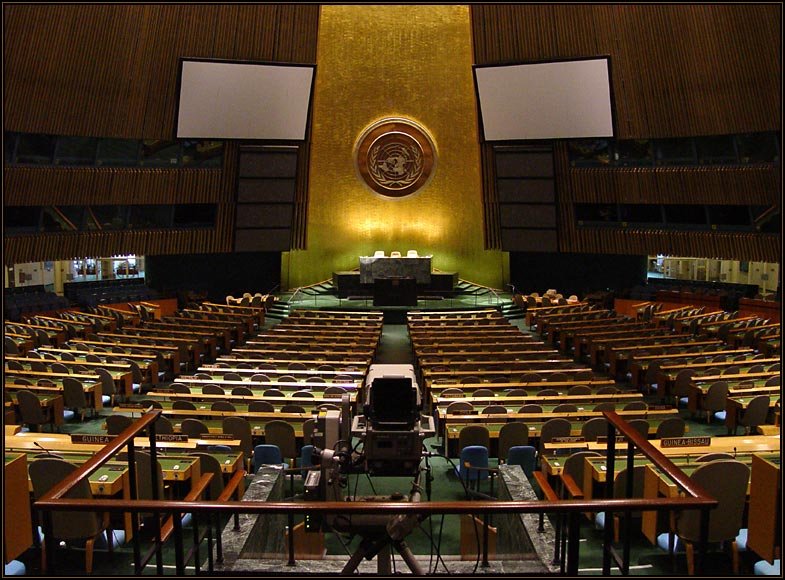In a recent climate summit at the U.N. General Assembly, Secretary-General Antonio Guterres made an urgent plea to global leaders about the dire state of the climate crisis, exacerbated by the vested interests of the fossil fuel industry.
As the world readies for the two-week U.N. climate summit, COP28, scheduled for Nov. 29 in Dubai, UAE, the message was clear: swift action is required to phase out fossil fuel usage, which is the primary driver of global warming.
Guterres stated, “Our shift to renewables is in progress, but the pace is alarmingly slow. It’s essential we accelerate, especially considering the vast interests profiting immensely from fossil fuels.”
The U.N. chief invited representatives from 34 nations, acknowledging their commendable efforts towards climate action. Countries such as Brazil, Canada, Pakistan, South Africa, and Tuvalu took center stage. Notably absent from the invitees were the globe’s leading polluters, the U.S. and China. Although the U.S. Special Envoy on Climate Change, John Kerry, attended, there was no immediate response from China’s U.N. mission regarding their omission.
Several leaders and representatives presented actionable steps and updated goals:
- Kenyan President William Ruto proposed a universal fossil fuel trade tax and levies on emissions from the aviation and maritime industries. He emphasized, “Africa and other developing nations require sustainable solutions, not charity.”
- California Governor Gavin Newsom highlighted California’s ambitious climate initiatives, including banning the sale of new gas engine vehicles by 2035. Criticizing the oil industry’s resistance to change, he stated, “This climate crisis stems primarily from fossil fuel dependence,” receiving significant applause for his statement.
- Brazilian Environment Minister Marina Silva declared Brazil’s revised emission reduction target, aiming for a 50-53% reduction below 2005 levels by 2030. This is a considerable deviation from the policies of former President Jair Bolsonaro.
- Thailand’s Prime Minister Srettha Thavisin shared that Thailand had bolstered its emission reduction goal to 40% below their usual projections by 2030. Underlining his commitment, he mentioned the recent establishment of a dedicated climate change ministry in Thailand.
Although the UAE did not delve into its national climate strategies, the COP28 President from UAE, Sultan Ahmed al-Jaber, was set to discuss the country’s objectives for the upcoming summit.
The climate crisis’s financial dimension was a primary discussion point. With COP28 approaching, Barbados’ Prime Minister, Mia Mottley, expressed concerns about the UNGA’s focus on the Ukraine war. She stressed, “While global issues like the situation in Ukraine matter, the climate crisis – which endangers lives worldwide – should not be overshadowed.”
Financial Commitments and Calls to Action
The need for financial support was a recurring theme:
- European Commission President Ursula von der Leyen reminded nations of the unfulfilled goal of channeling $100 billion annually for climate finance. She stated, “Maintaining trust is essential.” She also noted the European Union’s contribution of $27 billion, consistent with the previous year.
- Nepali Prime Minister Pushpa Kamal Dahal, speaking for the least developed nations, called for doubled financing for climate adaptation efforts, citing that the current year might be the hottest ever recorded.
- Kristalina Georgieva, the International Monetary Fund’s managing director, emphasized the importance of eliminating fossil fuel subsidies, which shockingly surged to $7 trillion last year, despite global commitments to reduce them. “By redirecting these funds,” she said, “we could allocate $7 trillion more towards transitioning to a greener future.”
Major global financial institutions, such as Allianz, the World Bank, and the International Monetary Fund, were slated to provide insights at the climate summit.
The U.N.’s Green Climate Fund, responsible for directing climate finance to developing nations, announced an impressive target: accumulating a minimum of $50 billion by 2030. Mafalda Duarte, the fund’s executive director, emphasized a paradigm shift from isolated projects to overhauling entire systems for more significant impact.
Conclusion
The summit was a clarion call for global leaders, financial institutions, and stakeholders to unite in addressing the climate crisis. The emphasis was on swift action, meaningful financial commitments, and the need to prioritize the planet’s health over entrenched fossil fuel interests.
Read More:
